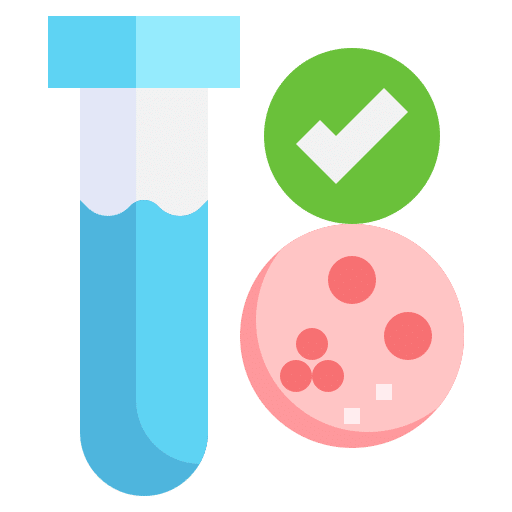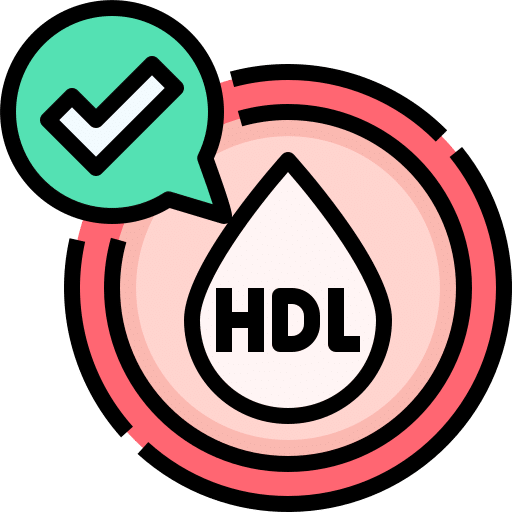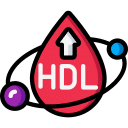
Total Cholesterol Analyzer

Analyzer Report
Frequently Asked Questions
Total cholesterol is a measurement of the overall quantity of cholesterol in your blood. Cholesterol is a waxy molecule that is required for several body activities, including hormone generation, vitamin D production, and cell membrane development. When cholesterol levels are too high, however, it can cause health concerns, most notably an increased risk of cardiovascular disease. A blood test is usually used to determine total cholesterol.
The following variables can contribute to a low total cholesterol level:
- Genetic factors: Because of their genetic composition, some people naturally have lower levels of total cholesterol. Low total cholesterol levels can be caused by inherited diseases such as familial hypobetalipoproteinemia and abetalipoproteinemia.
- Malnutrition or malabsorption: Low cholesterol levels can be caused by insufficient dietary fat intake or malabsorption illnesses such as celiac disease or certain gastrointestinal problems.
- Cirrhosis and severe hepatitis, for example, might impair the generation of cholesterol in the liver, resulting in reduced total cholesterol levels.
- Hyperthyroidism: When the thyroid gland is hyperactive (hyperthyroidism), total cholesterol levels might fall.
- Medications: Statins (cholesterol-lowering pharmaceuticals) and fibrates, for example, can reduce total cholesterol levels. However, these drugs are often provided to those who have high cholesterol levels.
High total cholesterol levels can be caused by a variety of illnesses and circumstances, including
● A poor diet heavy in saturated and trans fats, cholesterol, and processed carbohydrates can raise total cholesterol levels.
● Obesity: Being overweight or obese can result in higher cholesterol levels, especially when accompanied with a poor diet and a lack of physical exercise.
● Sedentary lifestyle: A sedentary lifestyle might contribute to elevated cholesterol levels. Regular exercise reduces LDL (low-density lipoprotein) cholesterol while increasing HDL (high-density lipoprotein) cholesterol, which is good for total cholesterol balance.
● Genetics and family history: Some persons are predisposed to high cholesterol levels due to a hereditary tendency. Familial hypercholesterolemia is a genetic disorder that causes high levels of LDL cholesterol.
● Cholesterol levels tend to rise with age and gender. Before menopause, women often had lower total cholesterol levels than males, but their levels may rise after menopause.
● Diabetes, hypothyroidism, renal illness, liver disease, and polycystic ovarian syndrome (PCOS) can all influence cholesterol metabolism and result in increased total cholesterol levels.
● Some drugs, such as corticosteroids, diuretics, beta-blockers, and some immunosuppressants, may raise cholesterol levels.
● Smoking affects blood arteries and reduces HDL cholesterol levels, making total cholesterol levels more likely to be increased.
● Alcohol consumption: Excessive alcohol drinking might elevate cholesterol levels.
Total cholesterol readings are used to assess a person’s cholesterol status in general. It is crucial to highlight, however, that a breakdown of LDL-C, HDL-C, and triglyceride levels gives a more complete evaluation of cardiovascular risk. It is critical for heart health to maintain a good balance of LDL-C, HDL-C, and triglycerides. Your doctor can evaluate your total cholesterol level and other lipid indicators to determine your cardiovascular risk and, if required, offer suitable therapies or lifestyle adjustments.
Typically, the desired ranges for total cholesterol are as follows:
● Desirable: Below 200 mg/dL (milligrams per deciliter)
● Borderline high: 200-239 mg/dL
● High: 240 mg/dL and above
The total cholesterol test incorporates the evaluation of three distinct components:
● Low-density lipoprotein cholesterol (LDL-C): Also known as “bad” cholesterol, LDL-C transports cholesterol from the liver to the body’s cells. However, if there is an excess of LDL-C in the bloodstream, it can form plaques on the artery walls, restricting blood flow and increasing the risk of heart disease.
● High-density lipoprotein cholesterol (HDL-C): Also known as “good” cholesterol, HDL-C transports excess cholesterol from the circulation to the liver for processing and elimination. Higher HDL-C levels are thought to be helpful since they can help minimize the risk of heart disease.
● Triglycerides are a form of fat that is present in the blood. Elevated triglyceride levels are frequently linked to an increased risk of heart disease, especially when paired with low HDL-C levels.

























